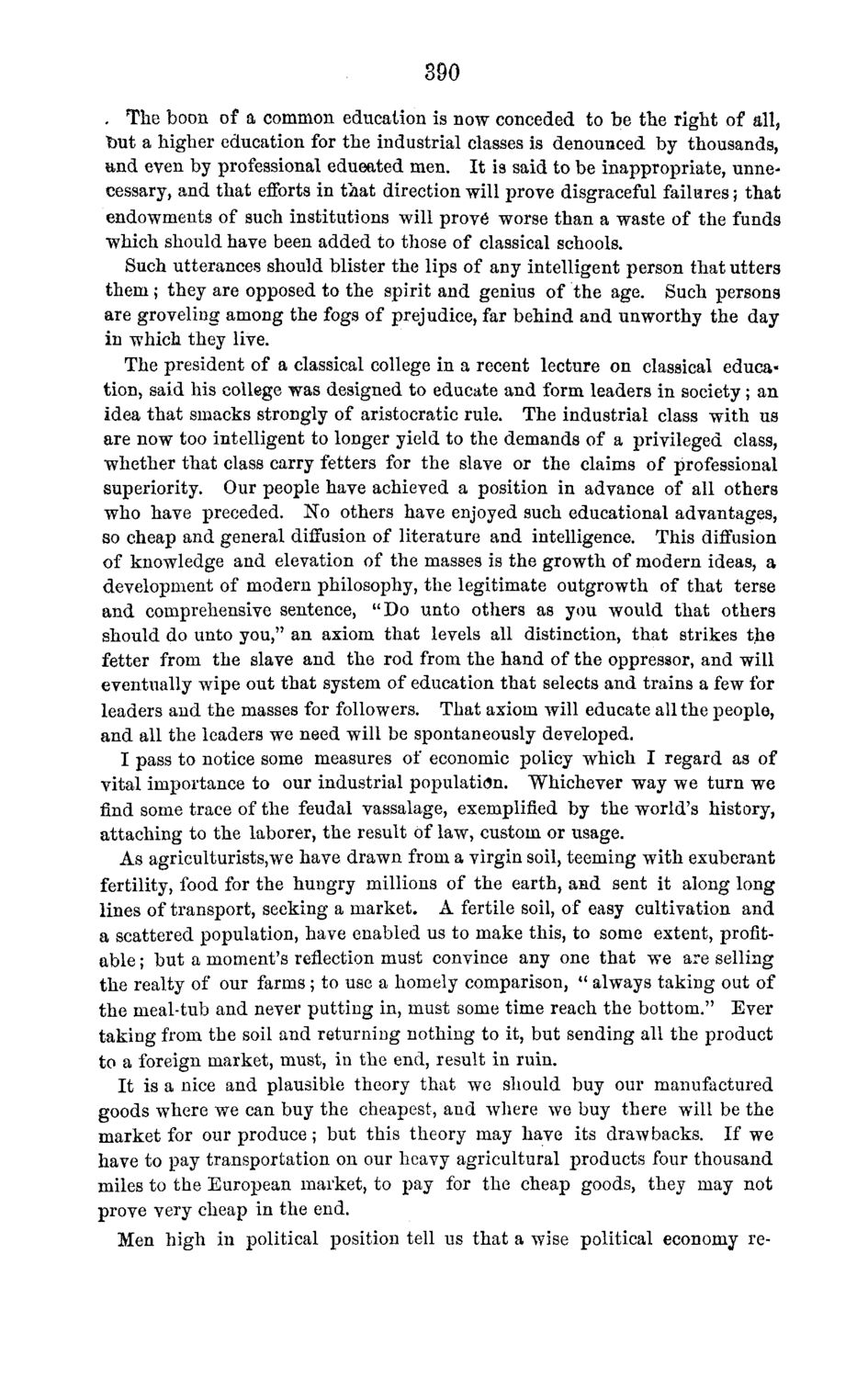| |
| |
Caption: Board of Trustees Minutes - 1870
This is a reduced-resolution page image for fast online browsing.

EXTRACTED TEXT FROM PAGE:
390 . The boon of a common education is now conceded to be the right of all, t)ut a higher education for the industrial classes is denounced by thousands, and even by professional educated men. It is said to be inappropriate, unnecessary, and that efforts in that direction will prove disgraceful failures; that endowments of such institutions will prove worse than a waste of the funds which should have been added to those of classical schools. Such utterances should blister the lips of any intelligent person that utters them; they are opposed to the spirit and genius of the age. Such persons are groveling among the fogs of prejudice, far behind and unworthy the day in which they live. The president of a classical college in a recent lecture on classical educa* tion, said his college was designed to educate and form leaders in society; an Idea that smacks strongly of aristocratic rule. The industrial class with us are now too intelligent to longer yield to the demands of a privileged class, whether that class carry fetters for the slave or the claims of professional superiority. Our people have achieved a position in advance of all others who have preceded. No others have enjoyed such educational advantages, so cheap and general diffusion of literature and intelligence. This diffusion of knowledge and elevation of the masses is the growth of modern ideas, a development of modern philosophy, the legitimate outgrowth of that terse and comprehensive sentence, "Do unto others as you would that others should do unto you," an axiom that levels all distinction, that strikes the fetter from the slave and the rod from the hand of the oppressor, and will eventually wipe out that system of education that selects and trains a few for leaders and the masses for followers. That axiom will educate all the people, and all the leaders we need will be spontaneously developed. I pass to notice some measures of economic policy which I regard as of vital importance to our industrial population. Whichever way we turn we find some trace of the feudal vassalage, exemplified by the world's history, attaching to the laborer, the result of law, custom or usage. As agriculturists,we have drawn from a virgin soil, teeming with exuberant fertility, food for the hungry millions of the earth, and sent it along long lines of transport, seeking a market. A fertile soil, of easy cultivation and a scattered population, have enabled us to make this, to some extent, profitable ; but a moment's reflection must convince any one that we are selling the realty of our farms; to use a homely comparison, " always taking out of the meal-tub and never putting in, must some time reach the bottom." Ever taking from the soil and returning nothing to it, but sending all the product to a foreign market, must, in the end, result in ruin. It is a nice and plausible theory that we should buy our manufactured goods where we can buy the cheapest, and where we buy there will be the market for our produce; but this theory may have its drawbacks. If we have to pay transportation on our heavy agricultural products four thousand miles to the European market, to pay for the cheap goods, they may not prove very cheap in the end. Men high in political position tell us that a wise political economy re-
| |